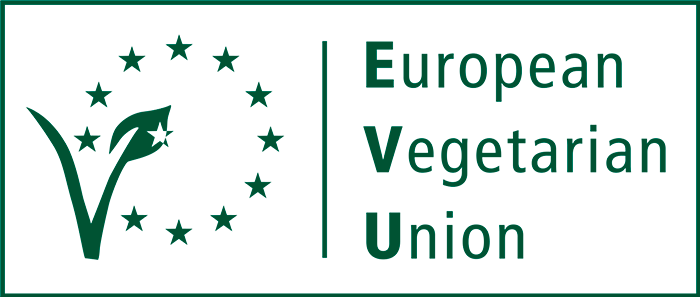Guest article by the Spanish Vegetarian Union (UVE)
For the first time, the Spanish Government officially recognised the option of 100% plant-based meals in school canteens, setting a precedent in terms of rights, inclusion, and sustainability.
The Spanish Vegetarian Union (UVE), and EVU member, welcomes the recent approval of the Decree on Healthy and Sustainable School Canteens, presented by the Minister of Social Rights, Consumer Affairs and Agenda 2030, Pablo Bustinduy, and passed by the Council of Ministers on May 28.
This new legal framework explicitly allows families to request special meals for ethical or conscience-based reasons, which includes the right to access 100% plant-based menus in schools across the country. This measure addresses a long-standing demand from thousands of families who, until now, have been excluded or discriminated against for following a diet aligned with ethical principles such as veganism.
“The approval of this Royal Decree is a milestone in guaranteeing rights for thousands of families in Spain. For the first time, the right to 100% plant-based menus in school canteens is recognized at the national level, allowing children to grow up in alignment with the ethical values of their homes. At the Spanish Vegetarian Union, we celebrate this progress and will work to ensure its correct implementation in all schools.”
— David Román, President of the Spanish Vegetarian Union
This achievement brings Spain in line with other European countries that already recognize this right, such as Portugal, France, Italy, Ireland, and Sweden, and it represents a key step towards a more inclusive and respectful educational environment.
Additionally, the Royal Decree ensures that if a school is unable to provide a plant-based meal, it must allow students to bring their own food from home. In such cases, the school must be equipped with appropriate refrigeration and heating systems to ensure the meal can be properly stored and consumed.
The decree also introduces important improvements in the nutritional quality of school meals. For the first time, vegetarian menus are explicitly mentioned, and schools are required to include plant-based protein as a second course, while encouraging the consumption of fresh foods, vegetables, legumes, whole grains, fruits, and nuts. The proportion of fruits and vegetables served is also increased to 45% of total servings.
This success has been made possible thanks to the tireless efforts of groups such as FEUMVE (Families United for a Plant-Based School Meal), ESVECO, and other civil society organizations that have been advocating for equal rights for years. Until now, the availability of plant-based options depended on regional regulations, resulting in disparities between communities and leaving many families without support.
While we celebrate this important step forward, the work is not over. The Royal Decree will come into effect on July 1, 2025, and from that date, schools will have twelve months to adapt to the new requirements. At UVE, we will continue working alongside public administrations, families, and schools to ensure effective implementation—so that all children can access meals that are healthy, ethical, and aligned with their family’s values.


